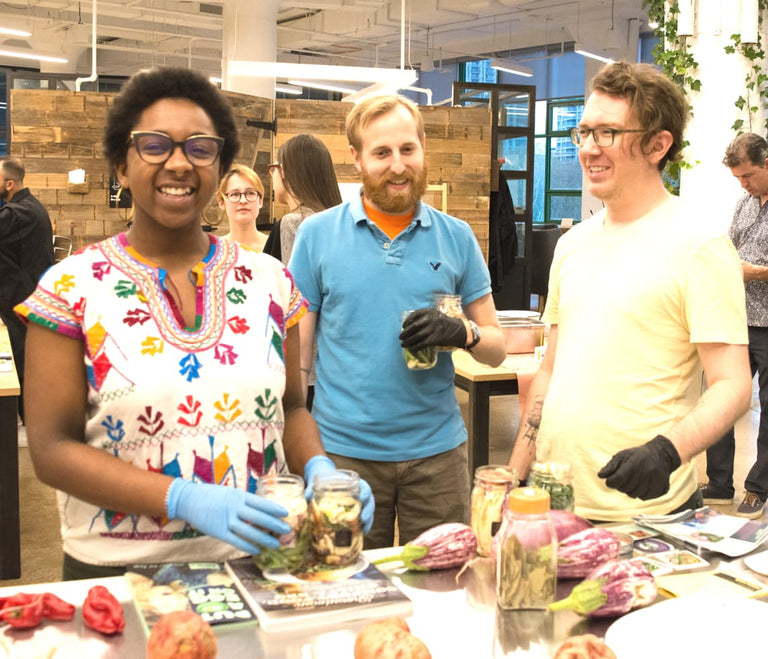Farm News: How the Russian Invasion of Ukraine Could Impact the Global Food Market

By now, you’ve probably heard something about the US and European sanctions placed against Russia succeeding their invasion of Ukraine this month. These sanctions span across industries (including the food sector), underscoring their main aim: to impair Russia’s economy, encouraging Putin to call off all Russian military progress into Ukraine.
But for two countries that have, in the past, been responsible for providing their low and middle-income neighbors with staples like wheat, corn, and vegetable oil, sanctions and conflict could send the food market (regional and global) into critical condition.
Consider the following:
In 2020, Ukraine and Russia accounted for more than 25% of all global wheat exports. Countries like Egypt and Turkey rely on Ukrainian and Russian imports for a combined 70% of their wheat supply. In 2020 also, 95% of Ukraine’s wheat exports were sent to poorer areas in the Middle East, North Africa, and South China, marking their importance upon the global stage.
Russia also happens to be the largest exporter in the world of crop fertilizer, a commodity that has already undergone a dramatic price spike this year to begin with. Plus, to make matters even worse, the recent displacement of those Ukrainians fleeing Russian presence has forced the bulk of food production within the nation to take an indefinite hiatus.
Still, there's more. Devastating climate impacts from earlier this year including intense droughts and heavy rainfall (paired with the lasting repercussions of COVID-19) have already heightened global hunger. Now, experts fear millions of people in regions near and beyond Ukraine and Russia will suffer from further, more severe food insecurity.
Not surprisingly, agriculturalists expect Ukraine’s farms will be more seriously affected by conflict than Russia’s, mainly due to expected shortages of fuel and fertilizers (two major Russian exports).
Even geographically, authorities anticipate food distribution will undergo a series of significant complications. Just last week, commodity shipping came to a complete cessation in the Sea of Azov.
Similarly, in what has often been considered a "vital hub" for global agriculture, the Black Sea now faces a grueling task: to juggle trade and production along with the obstacles borne of military conflict. In effect, shipping cargo from port to port is likely to face prolonged disruptions, straining its efforts at circulating grain and other commodities according to its usual schedules.
Lurking on the horizon lie more shared anxieties regarding whether or not Russia, like the United States and Europe, will decide to cease their own exports, effectively lowering the cost of food in Russia while placing an extreme blow to the rest of the world’s food systems.
This would not be the first time Russia has halted its exports to the world’s nations. In 2020, it briefly stopped grain exportation citing the effects of COVID-19, and in 2020, it exhibited the same isolating tactics after suffering a slew of climate disasters. These decisions have, of course, all been lucrative to the Russian economy (whether it be in terms of financial recovery, political gain, or both).
Research conducted in the last decade tells us that “feedback exists between food price and political violence: higher food prices increase conflict within markets, and conflict increases food price,” marking an important point for anyone considering the global food market as it exists today.
During a time when our global food index is at the highest it’s been since 2011, it is absolutely crucial we educate ourselves about the global food market, raise our voices, and begin to enact real change in the global food market; not only because hunger contributes to conflict (and vice versa), and not only because food insecurity causes higher prices.
Instead, for the sake of humanity, health, and the right of all to access nutritional food without scarcity, let us remember the fact that, as one Norweigan fertilizer maker has pertinently reminded us:
"The international community needed to reduce its dependence on Russian raw materials for agriculture."
But reducing our dependence on just Russian raw materials serves to help only this particular crisis. In a far more global sense, we must reduce our reliance on the vast majority of non-local foods for a laundry list of reasons including all those identified above.
Like Siobhan McDonough and Youyou Zhou so eloquently put it in their think-piece for Vox, “The reality is that hunger almost always follows conflict.” It is here, in our human obligation to stand against injustice, especially that which is directed against innocent people, that we may realize one of the most compelling reasons to reinforce our support in localized food systems for the benefit of all the world's citizens.
Article by Local Roots contributor Jess Santoro // @jess_santoro
Rather have a taste first?
Local Roots Experiences are fun, pop-up events where we bring the farm to you!

Become a Harvest Club Pick Up Location
Are you a NY based cafe, bar, or neighborhood business? Become a Harvest Club pick up location and have community members come to your establishment each week to pick up their Local Roots harvest.
Top






